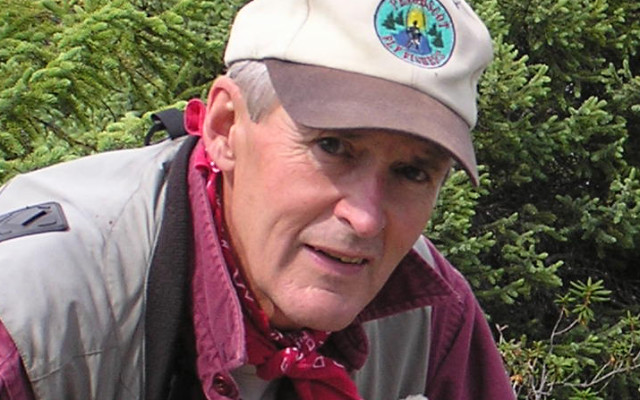
The Great Moose Lottery is good for the economy
By V. Paul Reynolds
Every year more than 70,000 aspiring Maine moose hunters submit an application to the Maine Department of Inland Fisheries and Wildlife to have their names placed in an electronic barrel in hopes of being drawn for a fall moose hunting permit. After all is said and done, a tad over 4,000 permits are drawn and issued. So the odds are formidable: about 95 % of those entering do not get drawn.
No matter. Hope springs eternal. We all cross our fingers, and apply each year. Some of us have been waiting for more than 20 years for that lucky draw. When it happens it is almost as good as winning the Power Ball, if not better. Octogenarians like me are in a race against the clock, hoping to hit pay dirt before being called up yonder.
The good news for old timers is that if you are 65 or older and have accumulated 30 bonus points, you are guaranteed a permit.
If you are a non-resident with lots of cash, you can buy as many extra “chances” as your wallet will allow.
This year, Diane and I, representing the Northwoods Sporting Journal, staffed a booth at the annual moose permit drawing in Fort Kent. The June day in the County dawned picture-book perfect, blue-sky cool and clear, and the turnout at the moose permit drawing was mighty impressive. The folks in the St. John Valley are not only warm and welcoming, they know how to put an event like that together. We enjoyed good food, good fellowship and watching a number of moose permit winners walking about with grins from ear to ear. No kidding, the moose drawing, with the high anticipation level, the wishfuls all gathered around as each of the 4,000 plus names are read, is truly a “happening.”
After experiencing our first moose lottery drawing, we don’t plan on missing another. A couple of other thoughts struck us as we took it all in. Attractions of this sort draw big crowds, and not all attendees are aspiring moose hunters. Many non-hunters told me that they were there just to take it all in and share the excitement. For any Maine town looking for a way to spike the local economy in June, the moose drawing has got to be helpful. The motels were all booked for the weekend, and the food vendors and booths were really busy.
How does a town get selected to host the annual moose lottery drawing? According to IF&W’s spokesman Mark Latti, any Maine town can submit a request to host the event. Latti says, “Each year we receive requests, sometimes it’s multiple, other times it is only one town. We review the requests to make sure that they can accommodate the lottery including having the necessary infrastructure and then try and rotate it through different parts of the state, alternating between north and south, east and west. It is a shot in the arm economically, it’s always a fun time, but it is a big commitment as well.”
With the drawing behind us, now comes all the preliminary logistics and planning as the lucky moose hunters either sign up with a moose guide and outfitter, or put together a do-it-your-self- hunt with friends and family.
Maine’s annual moose hunt continues to be one of the most coveted big game hunts in the country. The first hunt was in 1980. The state issued 700 permits and hunters enjoyed a 91% success rate that year. In 1983, an anti-hunting group, SMOOSA, tried to get the hunt stopped through state referendum. The effort failed, and thankfully so. Today, 44 years later, with the exception of winter tick kills, the Maine moose population thrives as hunters harvest a small percentage of the overall moose numbers and moose viewers continue to enjoy seeing these awesome wild animals in their natural settings.
The author is editor of the Northwoods Sporting Journal. He is also a Maine Guide and host of a weekly radio program “Maine Outdoors” heard Sundays at 7 p.m. on The Voice of Maine News-Talk Network. He has authored three books. Online purchase information is available at www.sportingjournal.com, Outdoor Books.